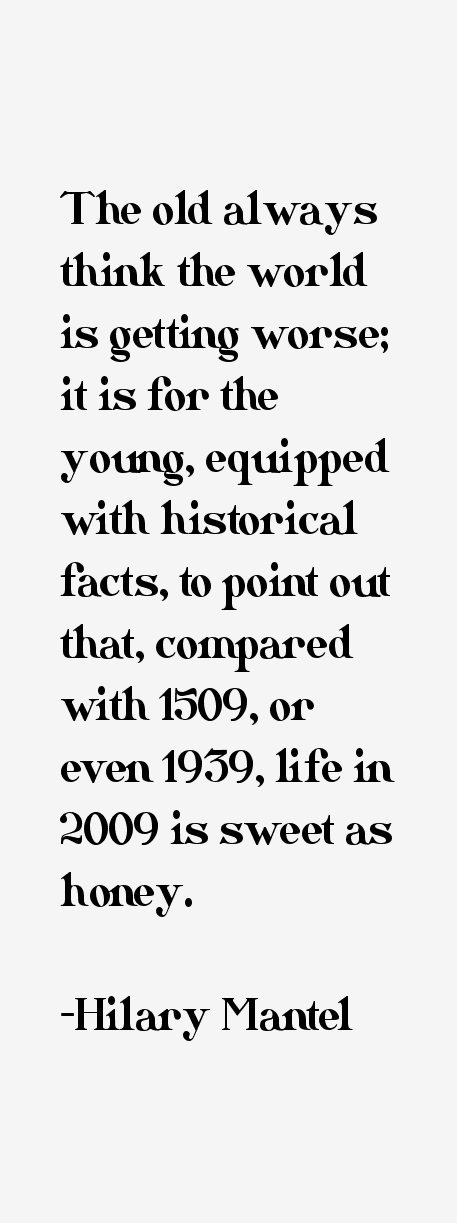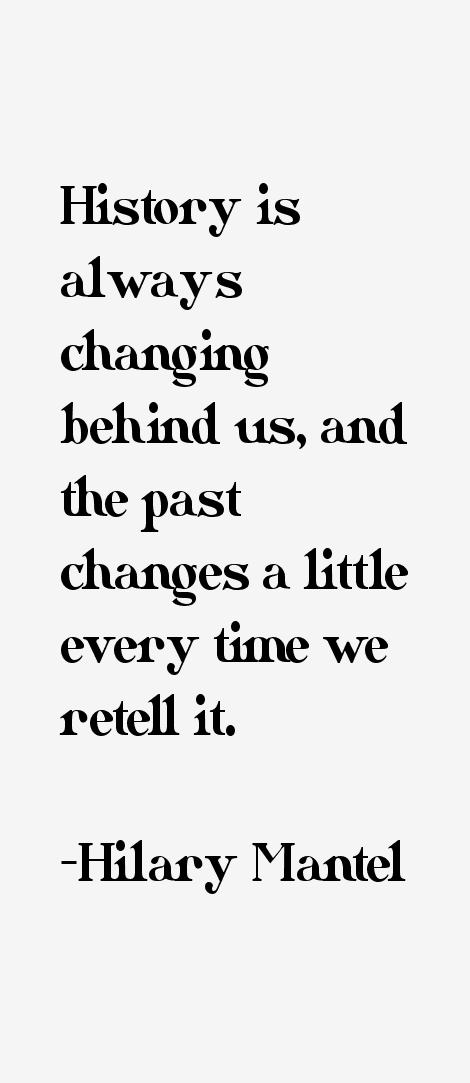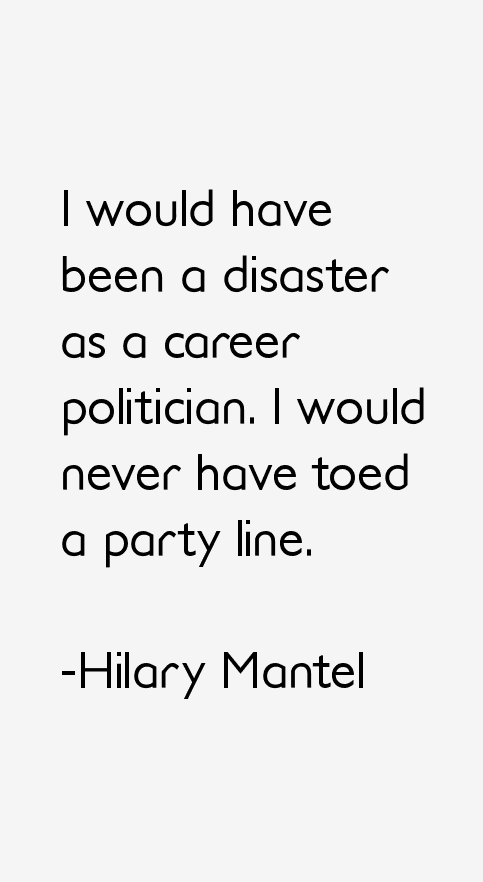Hilary Mantel Quotes & Sayings (Page 5)
Hilary Mantel quotes and sayings page 5 (writer). Here's quote # 41 through 50 out of the 76 we have.

“The old always think the world is getting worse; it is for the young, equipped with historical facts, to point out that, compared with 1509, or even 1939, life in 2009 is sweet as honey.”
“Concentrate your narrative energy on the point of change. This is especially important for historical fiction. When your character is new to a place, or things alter around them, that's the point to step back and fill in the details of their world.”
“The novelist has a responsibility to adhere to the facts as closely as possible, and if they are inconvenient, that's where the art comes in. You must work with intractable facts and find the dramatic shape inside them.”
“You can control and censor a child's reading, but you can't control her interpretations; no one can guess how a message that to adults seems banal or ridiculous or outmoded will alter itself and evolve inside the darkness of a child's heart.”

“In my 20s I was in constant pain from undiagnosed endometriosis. With no prospect of a cure, I decided I needed a career - writing - that could accommodate being ill.”
“Novelists, it seems to me, are the very last people who should be asked to comment on the news of the day, and sooner or later, when they have been pilloried for their views, most of them recognise this.”
“When you have committed enough words to paper, you feel you have a spine stiff enough to stand up in the wind. But when you stop writing, you find that's all you are - a spine, a row of rattling vertebrae, dried out like an old quill pen.”

“History is always changing behind us, and the past changes a little every time we retell it.”

“I would have been a disaster as a career politician. I would never have toed a party line.”
“When I was thin, I had no notion of what being fat is like. When I worked in a department store, I had sold clothes to women of most sizes, so I should have known; but perhaps you have to experience the state from the inside, to understand what fat is like.”
Hilary Mantel Quotes Rating
No Ratings Yet
Leave A Comment
























